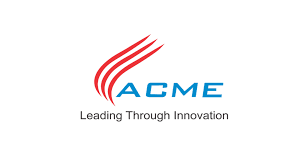ACME Solar Holdings Ltd has clinched a major win in India’s renewable energy landscape, securing a 50 MW Firm and Dispatchable Renewable Energy (FDRE) project from Tata Power at a competitive tariff of ₹4.43 per unit. The announcement, made public on September 3, 2025, marks a significant milestone in ACME’s aggressive expansion strategy and underscores the growing momentum behind FDRE projects in India’s clean energy transition.
What Is FDRE and Why It Matters
FDRE—Firm and Dispatchable Renewable Energy—is a new frontier in India’s renewable energy strategy. Unlike traditional solar or wind projects that are intermittent and weather-dependent, FDRE projects combine renewable generation with energy storage systems to deliver consistent, reliable power. This makes them ideal for meeting peak demand and ensuring grid stability.
The 50 MW project awarded to ACME Solar is part of a larger 250 MW FDRE tender floated by Tata Power’s distribution arm, Tata Power-D. The tender followed a tariff-based competitive bidding process and was finalized through an e-reverse auction held on August 13, 2025.
Project Details and Execution Timeline
Under the terms of the award, ACME Solar will be required to:
Maintain a minimum annual Capacity Utilization Factor (CUF) of 40%
Ensure four hours of peak-hour supply with 90% monthly availability
Integrate solar generation with a Battery Energy Storage System (BESS)
Commission the project within 24 months of signing the Power Purchase Agreement (PPA)
The PPA will span 25 years, providing long-term revenue visibility and operational stability for ACME Solar.
Strategic Significance for ACME Solar
This win comes at a time when ACME Solar is rapidly scaling its operations. The company’s operational capacity has surged to 2,540 MW in FY25, up 80% from 1,340 MW in FY24. With a target of 10 GW contracted capacity by 2030, ACME is investing heavily in solar, hybrid, and FDRE projects.
CEO Nikhil Dhingra emphasized the company’s focus on financial prudence and technological innovation. “Our projects are fully funded, and we aim to efficiently integrate advanced renewable energy solutions,” he said in a recent statement.
ACME is also prioritizing digitization, predictive maintenance, and AI-driven asset management to optimize performance and reduce downtime.
Financials and Market Position
The company has secured power purchase agreements (PPAs) for 2,340 MW out of its 4,430 MW under-construction portfolio. Debt financing of ₹16,500 crore has been sanctioned for 1,700 MW of these projects, with an additional ₹5,500 crore tied up for refinancing operational assets at an improved annual rate of 8.8%2.
In Q3 FY25, ACME Solar reported total revenue of ₹401 crore, reflecting a 9.9% year-on-year growth. These financial metrics position ACME as one of the most bankable and scalable players in India’s renewable energy sector.
Tata Power’s Role and Broader FDRE Push
Tata Power, through its distribution arm, is playing a pivotal role in mainstreaming FDRE in India. The 250 MW tender saw participation from several leading players, including Juniper Green Energy, Navayuga Engineering, and Tata Power Renewable Energy itself.
Tata Power Renewable Energy secured the largest share of 80 MW at a tariff of ₹4.77/kWh, while ACME Solar’s winning bid of ₹4.43/kWh was among the most competitive.
FDRE projects are expected to become a cornerstone of India’s energy policy, especially as the country targets 500 GW of non-fossil fuel capacity by 2030. By integrating storage solutions, FDRE helps mitigate the intermittency of renewables and supports round-the-clock electricity supply.
Outlook: A Greener, Smarter Grid
ACME Solar’s latest win is more than just a business victory—it’s a signal of how India’s energy ecosystem is evolving. With FDRE projects gaining traction, the country is moving toward a smarter, more resilient grid that can handle the demands of a growing economy and a changing climate.
As ACME continues to expand its footprint, its blend of financial discipline, technological innovation, and strategic partnerships will be key to shaping the future of renewable energy in India.
Sources: Business Upturn, Mercom India, Economic Times
